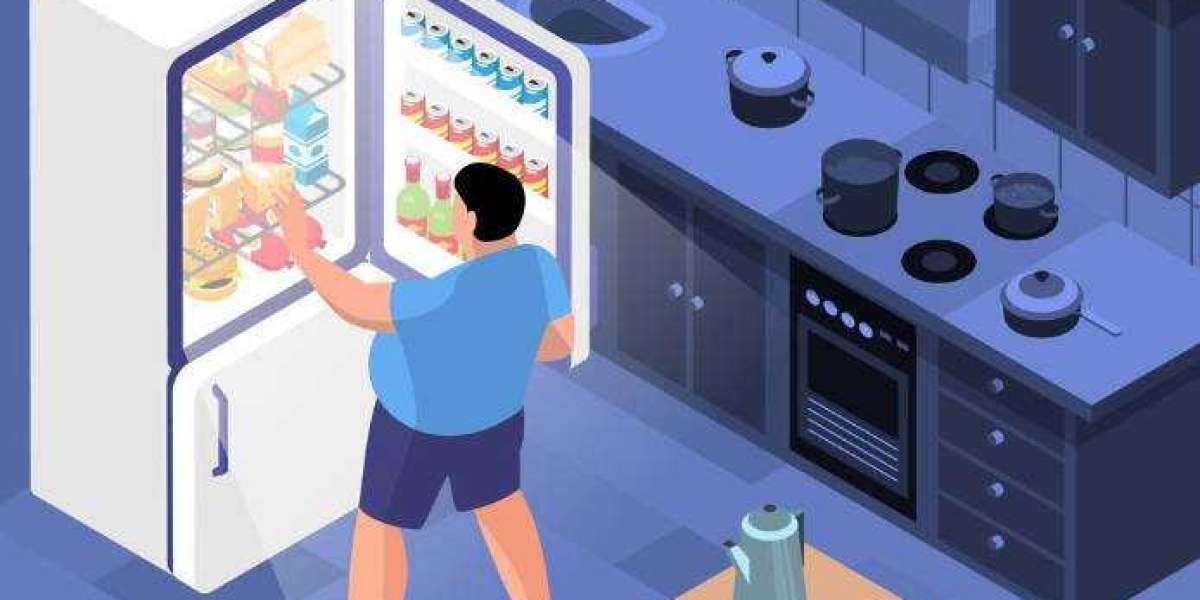In the foodservice industry, refrigeration equipment is essential to maintaining food safety, quality, and freshness. However, just like any piece of machinery, refrigeration units require consistent care to ensure long-lasting performance. Investing time and effort into maintaining your equipment can save on costly repairs, extend its lifespan, and reduce energy consumption. Here are some essential tips for keeping your refrigeration equipment running smoothly for years to come.
1. Clean the Condenser Coils Regularly
The condenser coils in your refrigeration equipment play a crucial role in the cooling process by releasing heat from inside the unit. However, they’re prone to accumulating dust, dirt, and grease, especially in commercial kitchens. Dirty coils can reduce your equipment’s efficiency, causing the compressor to overwork, which can lead to breakdowns and higher energy bills.
Aim to clean the condenser coils every one to three months. Use a soft brush or a vacuum cleaner to remove dust and grime. In grease-heavy environments, you may need to clean the coils more frequently to prevent buildup that can obstruct airflow and reduce the cooling capacity of your equipment.
2. Check and Replace Door Seals as Needed
Door seals, or gaskets, are essential for maintaining an airtight seal, which keeps cold air inside and prevents warm air from entering the unit. When door seals wear down, crack, or tear, the refrigerator or freezer has to work harder to maintain the desired temperature. This not only increases energy consumption but also puts unnecessary strain on the compressor.
To check your door seals, close a dollar bill in the door—if it easily slides out, the seal may need replacement. Routinely inspect gaskets for signs of wear and clean them with warm, soapy water to prevent dirt buildup. Replacing worn seals promptly helps your equipment maintain energy efficiency and prevents costly repairs down the road.
3. Maintain Consistent Temperature Settings
Keeping your refrigeration equipment at the correct temperature is vital for both food safety and energy efficiency. Most refrigerators should be set between 35°F and 38°F (1.6°C to 3.3°C) for optimal performance, while freezers should be kept at 0°F (-18°C). Fluctuating temperatures can compromise food quality and force the equipment to work harder, which leads to a shorter lifespan.
Use a thermometer to monitor the temperature and verify that it matches the thermostat setting. Regularly check and recalibrate the thermostat if necessary, as this helps ensure that the unit maintains a stable temperature, reducing energy waste and enhancing food preservation.
4. Avoid Overloading the Refrigerator
Overloading your refrigeration equipment can lead to poor air circulation, resulting in uneven temperatures throughout the unit. When airflow is obstructed, certain areas of the refrigerator may be colder than others, which can cause some items to freeze while others spoil.
To prevent this, organize items neatly and avoid stacking products too closely. By maintaining proper airflow, you ensure that the refrigeration unit works efficiently, which reduces strain on the compressor and promotes consistent cooling. Additionally, keeping the unit organized allows your staff to locate items more easily, streamlining kitchen operations.
5. Inspect and Clean Fan Blades
The fan blades in your refrigeration equipment help circulate cold air and maintain a uniform temperature throughout the unit. Dust, dirt, and grease buildup on fan blades can reduce airflow and force the unit to work harder. Over time, this can lead to overheating and damage to the fan motor.
Regularly inspect the fan blades and clean them with a soft cloth. Be sure to turn off the unit before cleaning to avoid any accidents. Keeping fan blades clean and free of debris helps improve airflow and ensures your refrigeration equipment runs efficiently.
6. Defrost the Freezer as Needed
Ice buildup in freezers can obstruct airflow and reduce the overall efficiency of your equipment. If your unit does not have an automatic defrost function, you’ll need to defrost it manually whenever you notice ice accumulation. Excessive ice not only takes up valuable storage space but also forces the equipment to work harder to maintain the set temperature.
Follow the manufacturer’s instructions for defrosting, and avoid using sharp objects to chip away at the ice, as this can damage the coils. Regular defrosting ensures your equipment operates efficiently and prevents unnecessary strain on the compressor.
7. Monitor Refrigerant Levels
Refrigerant is essential for your refrigeration equipment to maintain proper cooling. If refrigerant levels are low, the unit will struggle to reach the desired temperature, leading to inefficient performance and potential spoilage of stored items. Low refrigerant levels can also indicate a leak, which should be addressed immediately to prevent damage.
Schedule regular maintenance checks with a qualified technician to inspect refrigerant levels and repair any leaks. Keeping refrigerant at optimal levels improves the cooling efficiency of your equipment, ensuring consistent performance and prolonging its life.
8. Ensure Proper Ventilation Around the Unit
Refrigeration units require adequate ventilation to release the heat generated during operation. Placing your unit too close to walls, equipment, or heat sources can block ventilation, causing the compressor to overheat. Overheating can reduce the efficiency of your refrigeration equipment and lead to early breakdowns.
Make sure there’s enough clearance around the unit to allow proper airflow, usually a few inches as recommended by the manufacturer. Additionally, avoid placing the unit near heat-emitting appliances like ovens or stovetops, as this can force it to work harder to maintain a cool temperature.
9. Train Your Staff on Proper Use and Care
Your refrigeration equipment’s longevity depends not only on regular maintenance but also on how well it’s handled by your staff. Train employees on proper usage, such as closing doors promptly, avoiding overloading, and monitoring temperature settings. Proper training ensures that the unit is used efficiently and helps prevent common mistakes that could lead to damage or reduced performance.
Encourage staff to report any unusual sounds, temperature fluctuations, or issues they notice, so they can be addressed promptly. With a team that understands the importance of equipment maintenance, you can maximize the performance and lifespan of your refrigeration units.
10. Schedule Professional Maintenance Checks
While routine cleaning and care can be done by your team, scheduling professional maintenance checks is crucial to catching potential problems early. A certified technician can thoroughly inspect your equipment, identify worn parts, check refrigerant levels, and perform any necessary repairs. Professional maintenance checks should be conducted at least twice a year for optimal results.
By investing in regular inspections, you help prevent minor issues from escalating into costly repairs or equipment failure. Professional maintenance also keeps your equipment in compliance with safety and health standards, ensuring that it performs reliably and efficiently.
Conclusion
Maintaining your refrigeration equipment is essential for maximizing its lifespan, reducing energy consumption, and ensuring it operates reliably. From routine cleaning of coils and fan blades to proper door seal maintenance and refrigerant level checks, each maintenance task contributes to your equipment’s longevity. Regular maintenance not only prevents breakdowns but also helps save on energy costs, ensuring your refrigeration unit continues to serve your business effectively.
By following these tips and committing to a consistent maintenance schedule, you can keep your refrigeration equipment in top condition, protect your investment, and provide your customers with fresh and safe food.


